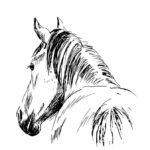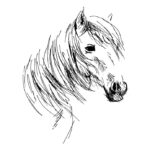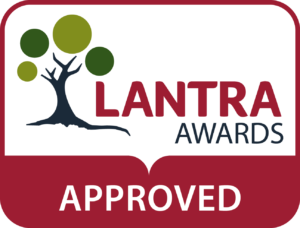Applied Behaviour Course
This course aims to equip students with the knowledge and skills to manage, handle and train horses in a way that meets their behavioural needs as well as their physical needs.
EQUINE BEHAVIOUR AFFILIATION
Applied Behaviour Course
Find out more
Our Courses
Our Equine Behaviour Courses aim to equip students with the knowledge & skills to manage, handle & train horses, keeping both their mental and physical well-being in mind.
Our courses are for anyone who wants to learn more about equine psychology and behaviour. Whether you are a horse owner or a professional in the equine industry; for anyone who spends time with horses, our courses are essential!!
We also offer ‘Beyond Behaviourism’ webinars every 3 months, free to supporting members for the first year.
About The Course
This course aims to equip students with the knowledge and skills to manage, handle and train horses in a way that meets their behavioural needs as well as their physical needs.
A deeper understanding of equine behaviour leads to:
- Improved physical and mental well-being for horses
- Improved physical and mental well-being for humans! Dangerous, frightening and frustrating conflict behaviours can be addressed and resolved
- More effective and enjoyable training
The course will encourage students to understand the behavioural needs of horses as a species, and also to assess each horse as an individual.
We move away from ‘systems’ and evaluate the quality of their environment and experiences not through our preconceptions of what they ‘should’ benefit from, but from trying to understand their responses.
Who is the Course For?
For anyone who wants to learn more about equine psychology and behaviour! For example horse owners, grooms, riding instructors, livery yard managers, vets – anyone who spends time with horses and would like to understand them better.
The course is also the first stage in the equine psychology specialist training offered by the EBA.
Application Process
To apply for the course, please complete the application form.
Each application will be assessed on its merits, with no fixed entry conditions – we would like the course to be accessible to all who would benefit from it.
Delivery
Each module comprises a minimum of 12 hours of teaching time; a mixture of lectures and practical application.
In addition to this, course work will take about 20 hours to complete per module, and support via email or phone will be provided free of charge throughout the course.
Lectures will be delivered via online meetings. We will endeavour to make the courses as accessible as we can, without compromising on quality and ensuring adequate practical tuition with horses is provided.
Pricing
Each module costs £160 to attend, including a practical session. If you wish to be registered with Lantra for a ‘certificate of competence’ on completion of the course, an additional £90 is due before the course starts. Marking of coursework costs £25 per module. Entry to the exam is £200.
We also allow attendance on individual modules. Please contact us for more details on which modules are available and how to attend.
Please contact your course provider for details.
Assessment and Qualifications
Each module will have coursework attached, which will be assessed by EBA assessors.
Completion of this coursework is required to achieve the EBA Applied Behaviour Certificate.
Each piece of coursework should take roughly 20 hours to complete.
At the end of the course there will be an exam. This will include assessment of the student interacting with horses and an oral exam. Exam Fee £200
Candidates successfully completing the exam are also eligible to receive a ‘Certificate of Competence’ from Lantra for an additional fee to Lantra of £90, payable before the course begins.
Modules
All modules will consist of a minimum of 10 hours of classroom time and 2 hours of practical work unless otherwise stated.
Part 1: Understanding Your Horse
Module 1 : Body Language and Communication.
In order to build a good relationship with your horse, meet their needs and train them effectively and ethically, it is essential that communication is two way!
This module will help you to identify what your horse is communicating both consciously and unconsciously; where subtle changes in body language reflect changes in emotional state for example.
There is a strong focus on recognising the subtle signs that indicate that all is not well, but also discussion on how we can tell when we are getting it right!
Practical work will develop the student’s skills in applying the theory objectively to the horses they encounter in real life.
Module 2 : Basic Needs and Beyond
We all have ideas about what horses need, often strongly influenced by the culture we grew up in.
This module will outline the evolution of horses, and examine how feral horses live today, using this information to consider the needs of our domestic horses without confusing them with our own traditions and needs.
Mental well-being will be discussed as it applies to all sentient animals, to equines, and to specific individuals.
The aim of this module is to be able to objectively assess and improve the mental well-being of our domestic equines.
Module 3 : Horse-Human Relationships
A good relationship is essential between horse and human when they spend time together; without this safety, welfare and effective communication are all compromised.
In this module we’ll examine the foundations of a ‘good’ relationship, drawing from research into both inter-species and intra-species relationships.
We’ll look at diverse areas such as the effects of relationships on brain function and development; trauma treatment; attachment theory as a model for how healthy relationships function and the practical steps to building a healthy relationship with horses.
Module 4 : Learning Theory
In this module the basics of learning theory will be covered. We consider how horses learn, using the foundations provided by the first three modules to better understand their full experience.
As well as explaining learning theory, we discuss the problems arising from applying the theory without being informed by a richer understanding of equine psychology.
Module 5 : Training
The fifth module will cover training and retraining techniques.
A strong emphasis will be placed on helping students to train in a way that is not only scientifically correct but is also ethical.
We will look at how to teach horses new skills, and how to change a horse’s existing responses. We focus on emotions and helping the horse to form positive associations and feel calm and confident about what she is doing, rather than ‘making’ her behaviour change regardless of feelings. At the heart of any training is consideration for mental well-being and relationship-building, creating a rich reflective practice.
Least Intrusive, Minimally Aversive (LIMA) guidelines will be discussed in depth, and practice at training real horses will be supported.
In light of the information in previous modules, we will also consider when training is appropriate, or if other changes are necessary first.
Part 2: Applying the Theory
Module 6 : Applying the Theory – Analysis of Common Training Systems
A broad range of training systems and methods will be analysed in this module, from traditional to alternative.
Students will develop their skills in recognising what kind of training is happening (from the horse’s point of view), identifying safety and welfare issues and being able to assess overall whether the training is effective and whether it is ethical.
The ‘side effects’ of various systems will be discussed – not just considering the behaviour changes seen, but the effect on the horse’s well-being, on their relationship with the trainer, and so on.
Module 7 : Applying the Theory – On The Ground
This is a very practical module. How to apply the theory presented in part one to everyday tasks such as veterinary procedures, grooming, leading, loading, catching; all the things we may do with horses when we are not on their backs!
Students will also be introduced to a small set of exercises that may be used to help build relationship between horse and human, help the horse to ‘learn to learn’, and also a set of alternative behaviours that horse and handler are both comfortable with, which can be asked for in place of unwanted behaviours.
Module 8 : Applying the Theory – Riding
What does this kind of riding look like? We’ll consider the tack used, biomechanics, training methods and more.
We believe that the foundations of ridden work should be a horse and rider working in harmony; conflict or coercion adversely affect safety, welfare and effectiveness of training.
The central theme of this module is the laying of these foundations.
Module 9 : Applying the Theory - Understanding Trans-species Systemic Formulation
This module will look at the process of formulation as applied to equine behaviour problems. A number of case studies will be presented to illustrate the process, and students will be given examples to work through in small groups.
Next course starting April 19th 2023
Felicity George MPhil
Courses
Online sessions are run in the evenings, from 6.30 – 9pm. Each module is 5 sessions long, with one or two week breaks in between modules. The whole course runs for approximately 15 months, including the final exam.
There are also three practical sessions. These are 6 hours each, and will be held in Central Scotland and also in the south of England (venue to be decided) but alternative arrangements may be possible if venues/times are difficult.
Applied Behaviour Course Application Form PDF
Membership
Join EBA
EBA is committed to supporting members through professional accreditation, education and opportunities for development.
We have 3 levels of Membership:
- Supporter
- EBA Student
- Professional
Visit our Membership Page for details on what each level offers and how to join.

Join as a Supporter
For any individuals who are interested in equine behaviour but who are not practising as an EBA Registered Equine Psychology Specialist.

STUDENT MEMBERSHIP
For anyone currently training with the EBA. You can join EBA as a student by registering and being accepted for any of our courses.

